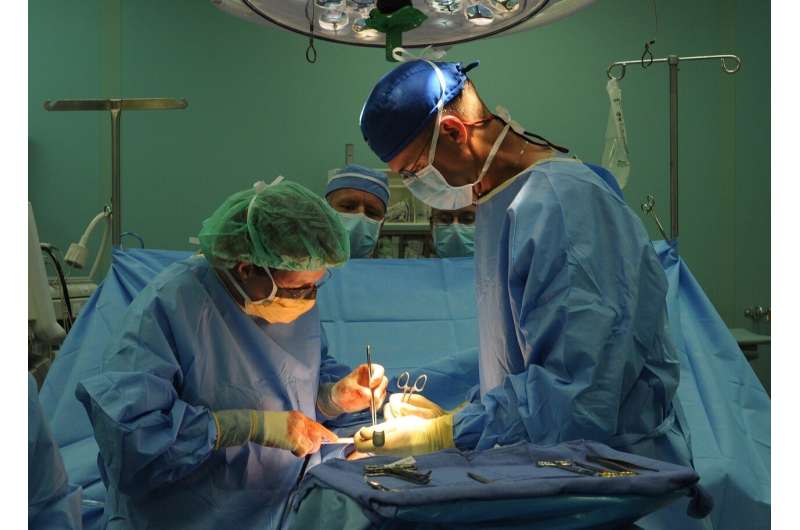
Bariatric surgery can significantly reduce the risk of cancer—and especially obesity-related cancers—by as much as half in certain individuals, according to a study by researchers at Rutgers Robert Wood Johnson Medical School’s Center for Liver Diseases and Liver Masses.
The research, published in the journal Gastroenterology, is the first to show bariatric surgery significantly decreases the risk of cancer in individuals with severe obesity and nonalcoholic fatty liver disease (NAFLD). The risk reduction is even more pronounced in individuals with NAFLD-cirrhosis, the researchers say.
“We knew that obesity leads to certain problems, including cancer, but no one had ever looked at it the other way around—whether weight loss actually reduced the risk of those cancers,” explains study author Dr. Vinod K. Rustgi, professor of medicine, clinical director of hepatology and Director of the Center for Liver Diseases and Liver Masses, Robert Wood Johnson Medical School. “Our study showed that all cancers were decreased, but obesity-related cancers in particular were decreased even more. Specifically, it showed a reduction in risk for all types of cancer by 18 percent, with the risk for obesity-related cancers being reduced by 25 percent. When comparing cirrhotic versus non-cirrhotic patients, cancer risk was reduced by 38 percent and 52 percent, respectively.”
The retrospective study looked at de-identified claims data of more than 98,000 privately insured individuals age 18 to 64 years old who were diagnosed with severe obesity and NAFLD between 2007 and 2017. Of those, more than a third (34.1 percent) subsequently had bariatric surgery.
In addition to an overall reduction in cancer risk for these individuals, researchers found that bariatric surgery was associated with significant risk reductions in these individuals for the following obesity-related cancers: colorectal, pancreatic, endometrial and thyroid cancers, as well as hepatocellular carcinoma and multiple myeloma.
The study results offer practical insight for clinicians and building blocks for future studies on the connection between NAFLD and cancer, Dr. Rustgi says.
“Understanding the connection between NAFLD and cancer may identify new targets and treatments, such as antidiabetic-, satiety-, or GLP-1-based medications, for chemoprevention in NAFLD/NASH. Though bariatric surgery is a more aggressive approach than lifestyle modifications, surgery may provide additional benefits, such as improved quality of life and decreased long-term healthcare costs,” the researchers indicate.
Source: Read Full Article
